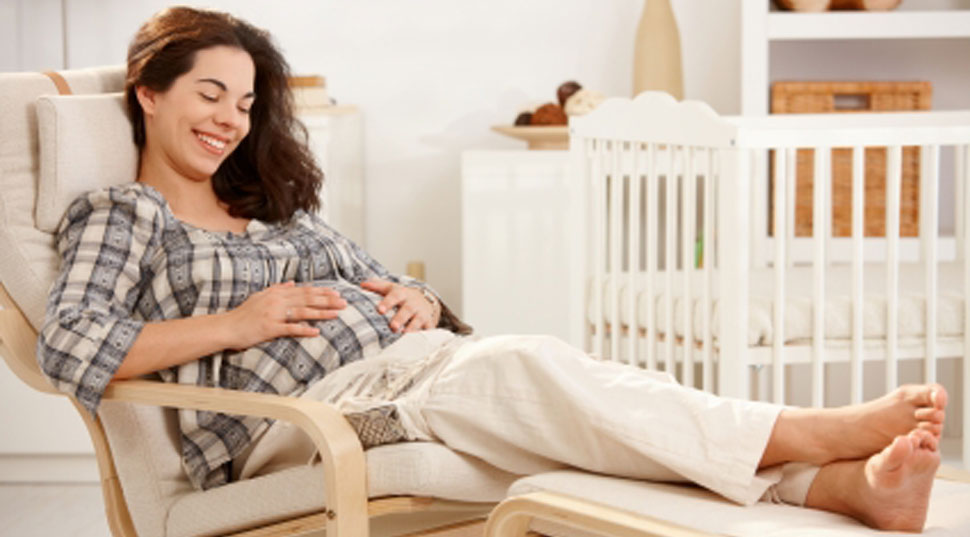
Issue
Cause
Recommendations
Shortness of breath and dyspnea occur in 60% of pregnant women
Expansion of diaphragm limited by enlarging uterus; diaphragm is elevated about 4 cm (1 1/2 in); some relief after lightening
Good posture; sleep with extra pillows; avoid overloading stomach, stop smoking; refer to physician if symptoms worsen.
Insomnia (trouble sleeping) in later weeks of pregnancy
Fetal movements, muscular cramping, urinary frequency, shortness of breath, or other discomforts
Reassurance; conscious relaxation; back massage or effleurage; support of body parts with pillows; warm milk or warm shower before retiring.
Mood swings, mixed feelings, increased anxiety
Hormonal and metabolic adaptations; feelings about impending labor, delivery, and parenthood
Reassurance and support from significant other; improved communication with partner, family and others
Return of urinary frequency and urgency
Vascular engorgement and altered bladder function caused by hormones; bladder capacity reduced by enlarging uterus and fetal presenting part; lightening
Kegel’s exercises; limit fluid intake before bedtime; reassurance; wear perineal pad; refer to doctor for pain and burning sensation.
Perineal discomfort and pressure
Pressure from enlarging uterus, especially when standing or walking; multi-fetal gestation
Rest, conscious relaxation and good posture; maternity girdle; refer to physician for assessment and treatment if pain is present.
Braxton Hicks contractions
Intensification of uterine contractions in preparation for work of labor
Reassurance; rest; change of position; practice breathing techniques when contractions are bothersome; effleurage; rule out labor!
Leg cramps — especially when reclining
Compression of nerves supplying lower extremities because of enlarging uterus; aggravating factors: fatigue, poor peripheral circulation, pointing toes when stretching legs or when walking, drinking more than 1 qt of milk per day
Use massage and heat over affected muscle; stretch affected muscle until spasm relaxes; stand on cold surface. Do not point toes straight out if in pain — point toes towards your head.
Expansion of diaphragm limited by enlarging uterus; diaphragm is elevated about 4 cm (1 1/2 in); some relief after lightening
Edema aggravated by prolonged standing, sitting, poor posture, lack of exercise, constrictive clothing (e.g., garters), or hot weather
Ample fluid intake for “natural” diuretic effect; put on support stockings before arising; rest periodically with legs and hips elevated; exercise moderately; refer to physician if generalized edema develops; No diuretics!